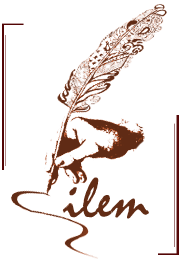
Información sobre el texto
Título del texto editado:
Preface
Autor del texto editado:
Dillon, John Talbot
Título de la obra:
Letters from an English travaller in Spain, in 1778, on the origin and progress of poetry in that kingdom
Autor de la obra:
Dillon, John Talbot
Edición:
London:
R. Baldwin,
1781
Preface
So many English travellers have of late published their remarks in their respective tours through Spain, that it is not without the utmost deference that the present Letters are offered to the public; as not only the most remarkable objects in that kingdom have been fully described, but we have moreover had catalogues of Greek and Latin books in libraries, lists of pictures, and circumstantial accounts of buildings, both Roman, Gothic and Saracenic, annexed to the various incidents of travelling. —Another writer has had recourse to the very rocks and mountains, has dug into the bowels of the earth, and visited the mines, describing the subterraneous kingdoms of nature, as well as the various trees, and plants that cover the surface of that extensive country. What then remains to the present writer? Or how can he flatter himself with presenting any new matter worthy the attention of his readers, that will stand the test, before the piercing eye of criticism? Yet methinks whatever may have been the cause, whether from bad reads, wretched inns, or extravagant price of provisions, in the course of these different peregrinations; the mountain of Parnassus has not been visited by the curious traveller, and the Spanish muse has tuned her lyre without being disturbed by the unhallowed step of the rambling stranger. —Should this be the ease, and that the author should have preferred the Castalian spring to the tempting juice of the La Mancha grape, he still claims indulgence for the many imperfections of the following sketch, while he truly dreads the charge of intoxication from these shallow draughts! 1 At the same time he acknowledges to have taken rather a cursory view of Don Quixote’s library, and some poems are not mentioned such as the Austriada of John Rufo, The tears of Angelica, The Fortune of Love of Antonio Lofrasco of Sardinia, with some others praised by Cervantes. However transient, the merit of these may have been, it is not so with an ingenious and burlesque poem intitled the Moschea by Joseph de Villaviciosa, which should not be forgotten, though not particularly mentioned in this work: the poet has described with infinite humour and pleasantry the inconveniences arising from that troublesome insect the moschetto: a new edition of it was lately published at Madrid and dedicated to our ambassador then at that court, Lord Grantham, evidently manifesting in the person of that accomplished nobleman, a sensibility of the impartial and resided Judgment of the British nation, of which the Spanish muse seemed desirous to court the particular favour and applause.
It has been said by a great and learned French writer “that the Spaniards have but one book, and that one, shews the ridicule of all the others.” How far such a general reflection appears strained and tinctured with national prejudice, I shall leave to others to consider: — wishing to reverse so severe a sentence, I now stand before the court of Apollo, and petition for a hearing. Can we avoid doing that justice to the surprising genius of Lope de Vega, the contemporary, and in a manner rival, of our immortal Shakespeare; or can we refuse encomiums to the learned and unfortunate Quevedo? to whom we may fairly apply the lines of Pope in favour of one of our own poets
To him the wit of Greece and Rome was
known
And ev'ry author's merit but his own.
To those who may be pleased with poetical numbers, a few specimens are added of the different kinds of Spanish versification. With respect to the judgement pasted onthe several poets, I have followed the opinions of their own countrymen, and I further acknowledge my particular obligations for this purpose, to two Spanish academicians, Don Lewis Joseph Velazquez, Knt. of the order of St. James, in his Essay on Spanish poetry; and to the new Spanish Parnassus, of Don John Joseph Lopez de Sedano, Knt of the order of Carlos Tercero; as well as to the posthumous Memoirs intended for the history of poetry and Spanish poets, by the late father Sarmiento, a learned Benedictine, from whose valuable writings I have selected much information: still the field is so ample that a great deal remains unexplored: I have in a manner only traced the skeleton of a gigantic figure, whose proportions, like the Farnesian Hercules, are more easily admired, than described. If therefore from want of abilities equal to the subject, I am deficient; I shall think myself amply rewarded, if on the whole, it may not be thought, I have already said too much, and that I do not fall under the imputation mentioned by Swift of some writers, when he says, “The most accomplished way of using books at present is, to serve them as some do lords, learn their titles, and then brag of their acquaintance”.
1. See Pope's Essay on Criticism.


